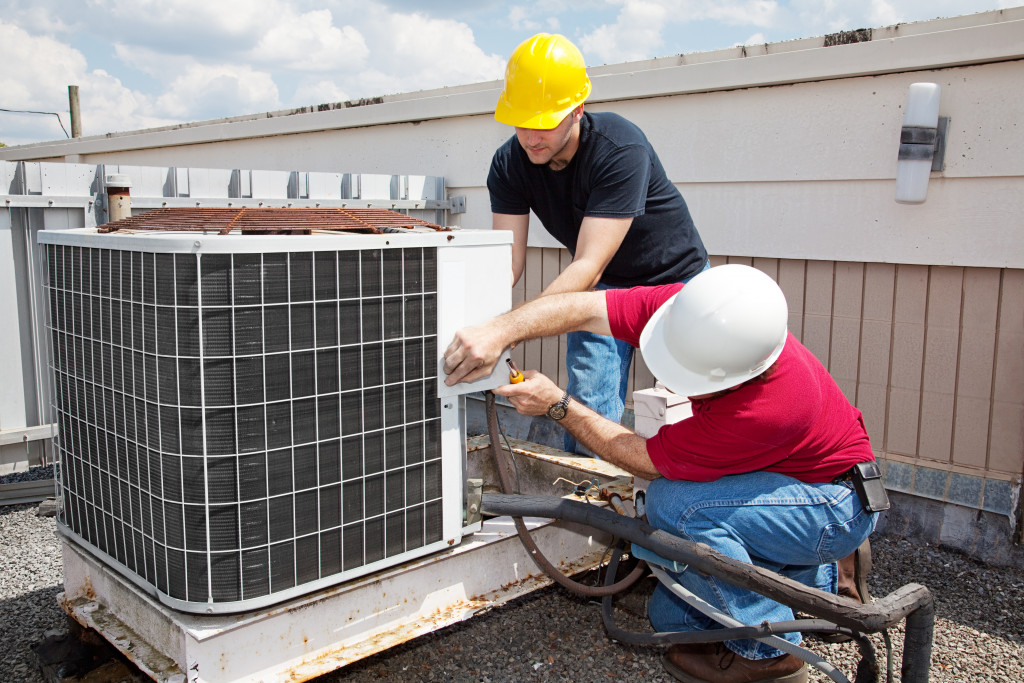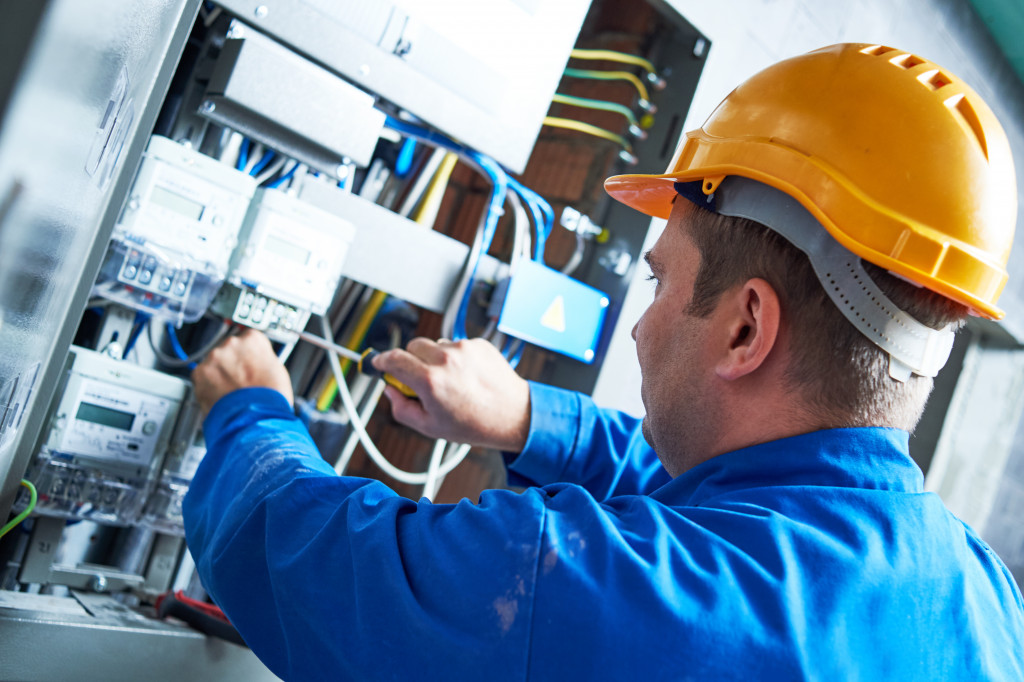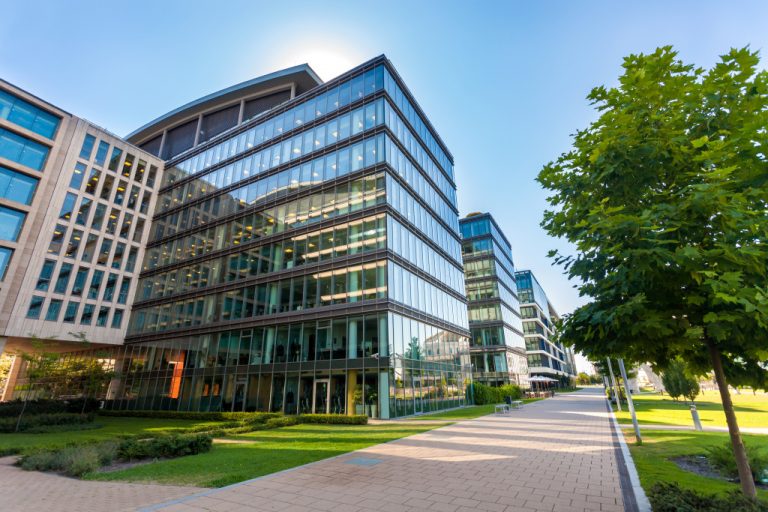- Performing routine maintenance on your HVAC system can extend its lifespan and reduce energy expenses.
- To maintain the building’s appearance, it is recommended to clean the gutters, inspect and maintain the roof, and power wash the exterior.
- When maintaining your electrical system, inspect the wiring to ensure it is sufficient, check for any faulty switches, and identify any overloaded circuits.
- Inspecting plumbing systems for leaks, cleaning pipes, and replacing any malfunctioning fixtures is recommended.
- Inspecting the foundation, floors, walls, and ceilings is crucial to properly maintain the structure.
Commercial real estate properties require regular maintenance to remain functional, safe, and aesthetically appealing for tenants, clients, and visitors. As an owner or manager of a commercial property, it’s crucial to prioritize maintenance tasks and allocate resources accordingly to avoid costly repairs and downtime. This blog post will explore the top areas to focus on when maintaining a commercial real estate property.
1. HVAC System Maintenance:
A commercial property’s heating, ventilation, and air conditioning (HVAC) system provides comfortable indoor temperature, air quality, and electrical efficiency. Regular maintenance of HVAC systems should include cleaning or replacing air filters, checking refrigerant levels, lubricating motors, and inspecting ductwork for leaks. Preventative maintenance will help prolong the lifespan of HVAC systems and save money on energy bills.
Make sure to work with commercial air conditioning services that have experience dealing with large HVAC systems and the necessary safety certifications. They should also have the right type of insurance and be familiar with local building codes.

2. Exterior Maintenance:
The exterior of a commercial property is the first impression tenants, clients, and visitors have of the building. Regular maintenance of the exterior should include the following tasks:
a. Cleaning gutters and downspouts
The building’s gutters and downspouts should be inspected regularly for damage or clogs, and debris should be removed to ensure proper drainage. This will help prevent water damage to the building’s foundation.
b. Inspecting and maintaining roofs
Most commercial roofs are made of material that needs regular maintenance to protect the building from water damage. This includes inspecting and repairing shingles, flashing, and seals. Flat roofs should be checked regularly for holes or cracks to prevent water damage and pests from entering the building.
c. Checking windows and doors
Windows and doors should be inspected for damage to ensure they are properly sealed and secure. Any damaged windows or doors should be repaired or replaced immediately. Many commercial real estate properties also require regular window cleaning to keep them looking their best.
d. Cleaning and painting
Regularly power washing the exterior of the building will help maintain its aesthetic appeal and remove any dirt or debris. If necessary, repainting the exterior can also refresh the property’s look and provide additional protection from the elements.
3. Electrical System Maintenance:
The electrical system of a commercial property is responsible for distributing power to all the outlets, lights, and equipment. You want to maintain this system regularly to prevent hazards such as inadequate wiring, faulty switches, and overloaded circuits. If you’re not an electrician, call in commercial electrical services with the necessary certifications and experience dealing with large-scale electrical systems. Never try to perform electrical repairs yourself.

4. Plumbing System Maintenance:
The plumbing system of a commercial property is responsible for providing clean water and disposing of wastewater. Plumbing system maintenance should include inspecting for leaks, cleaning drain pipes and grease traps, and replacing worn-out fixtures. Proper care of plumbing systems can prevent water damage, contamination, and costly repairs.
Some buildings also require regular backflow testing to ensure wastewater isn’t flowing back into drinking water supplies. This is especially important for commercial real estate properties near rivers or other bodies of water. If you see any signs of a plumbing issue, call professional plumbers to help diagnose and repair the problem.
5. Structural Maintenance:
Finally, always inspect the structural integrity of a commercial real estate property regularly. This includes checking for signs of foundation issues, such as cracks or sinking, and inspecting the building’s walls, ceilings, and floors. Structural maintenance is essential for older buildings as it can help prevent significant damage or collapse.
Call a structural engineer to assess the situation and advise on repairs if you find any issues. They can help ensure the safety of tenants, clients, and visitors. Ask for past customer references to ensure you work with a reliable professional. If you don’t have the necessary experience or expertise, it’s best to leave structural repairs to the professionals.
Maintaining a commercial real estate property is crucial for the building’s safety, functionality, and appeal. Prioritizing HVAC, exterior, electrical, plumbing, and structural maintenance will prevent costly repairs and give tenants, clients, and visitors a positive impression of the property. Regular maintenance will ultimately extend the lifespan of the building and maximize the return on investment for the property owner. Allocate resources accordingly and partner with trusted maintenance professionals to ensure the property is well-maintained.
